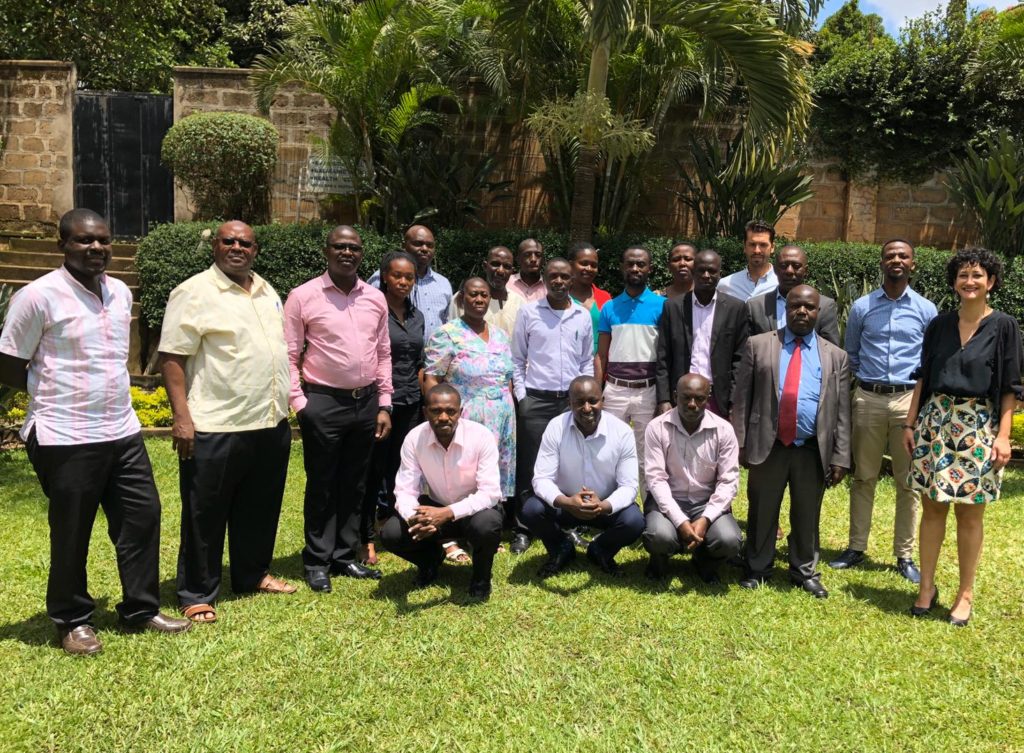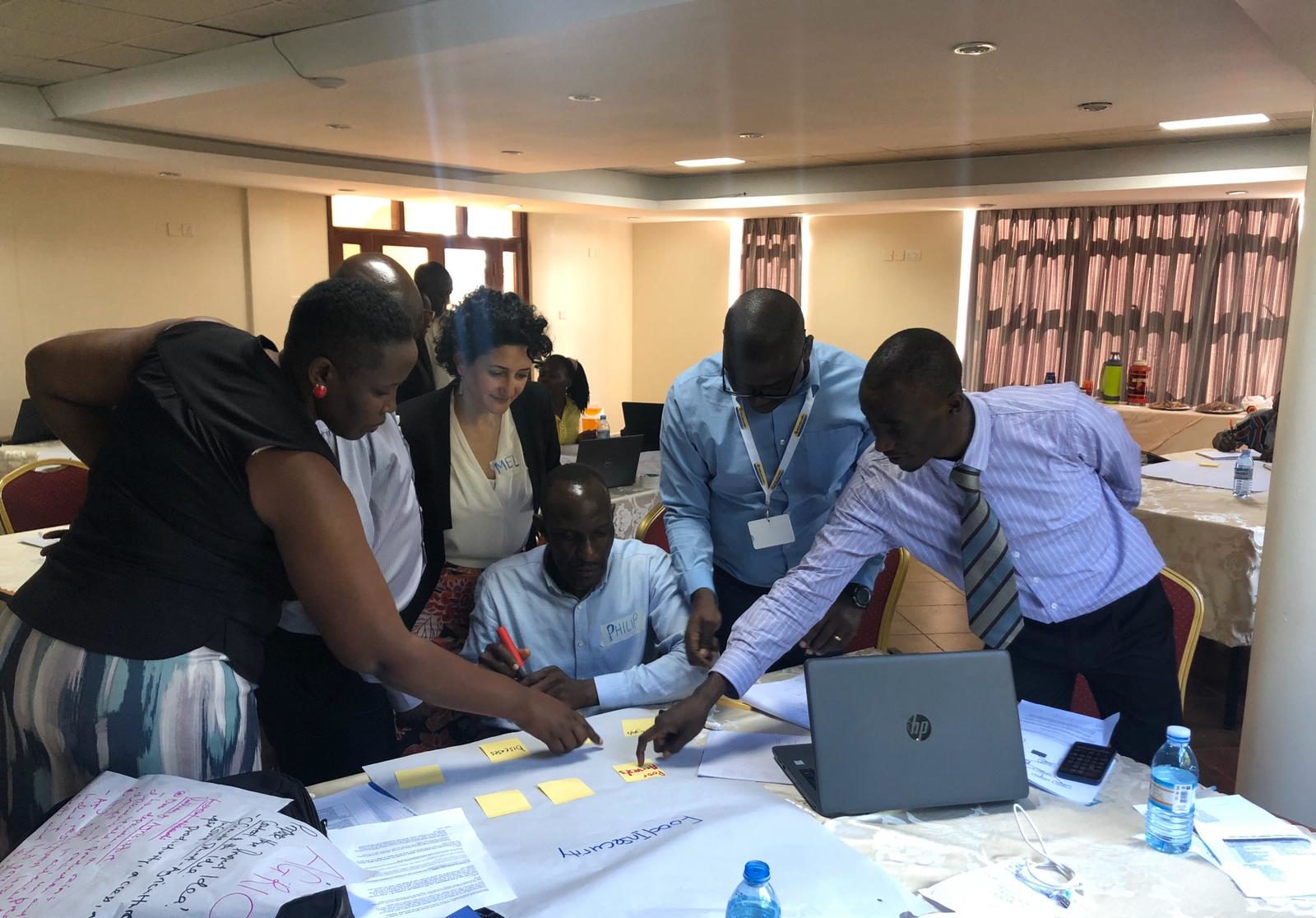E Co. training: Accelerating climate action in Uganda
13 November 2019, Ben Bartle, Category: All insights, News, Tags: Capacity building, climate finance, gcf, NDC Partnership, project development, Training, Uganda

As the climate crisis deepens, the need for solutions grows more dire in developing countries. Climate finance must be channeled to and made accessible by stakeholders ready to rise to the challenge. One major hurdle for these stakeholders to overcome is that project design, and submission processes are highly complicated, meaning that many organisations lack the capacity to develop bankable projects. To improve the number and quality of proposals, E Co. offers bespoke and packaged training to stakeholders keen to bolster their project development skills. In October, Mel Phadtare and I travelled to Kampala, Uganda to deliver such training.
The NDC Partnership
The training was commissioned by the NDC Partnership, which plays a crucial role in accelerating climate action. The NDC Partnership is a coalition of national governments, international institutions, civil society organisations, researchers and the private sector established in 2016 at COP 22. Using their resources and expertise, partners work with countries to help them implement their NDCs. To do this, the NDC Partnership takes three critical approaches: 1) supporting governments in defining processes and policies to deliver on the NDC; 2) knowledge and information sharing and 3) increasing access to finance. As part of this assignment, E Co. is currently serving as Technical Advisor to Uganda’s National Planning Authority.
The training covered a critical step in the project development process for the Green Climate Fund (GCF). These included:
- GCF investment criteria
- Project identification
- Stakeholder analysis
- Problem and objective tree analysis
- Theory of change
- Barrier analysis
- Climate rationale
- Results frameworks
- The project logic
- Project risks, assumptions and indicators
- Institutional arrangements
- Annexes, studies and gender requirements
- Project finance and budget preparation
- Private sector engagement
- Co-financing

Conducting a group exercise during our participatory workshop
Training participants brought their own early-stage concept notes with them. Trainees were encouraged to develop and refine key sections of their concept notes during the training and used case studies to facilitate learning. People particularly enjoyed the group exercises and discussing with us how to integrate the lessons learned from GCF project design into their projects to bolster their chances of meeting GCF investment criteria. The training used a participatory pedagogy and participants were encouraged to ask questions, work in groups and reflect throughout the training. There were 30 participants from national and local government, civil society organisations and private sector actors.
The training is only one part of the assignment with the NDC Partnership. E Co. is also developing a national project development guideline/manual and providing coaching for the development of three selected concepts and one funding proposal.
Build your skills together with us
E Co. has a long and successful track record in delivering training on GCF project development. We’ve delivered training to a variety of stakeholders (UN, local governments, national governments, civil society organisations, and private sector actors) in Africa, Asia and Latin America. We hope to open up climate finance to more and more actors and help stakeholders access funds. Our practical trainings are developed with specific reference to the priorities, needs, capabilities and constraints facing participants in a given country. Through these trainings, we aim to strengthen participants’ capacities to identify international climate financing sources and alternatives, manage the application process, develop successful climate-related programmes, project concepts and proposals, and identify needs and opportunities for further support.
Join the conversation by posting a comment below. You can either use your social account, by clicking on the corresponding icons or simply fill in the form below. All comments are moderated.